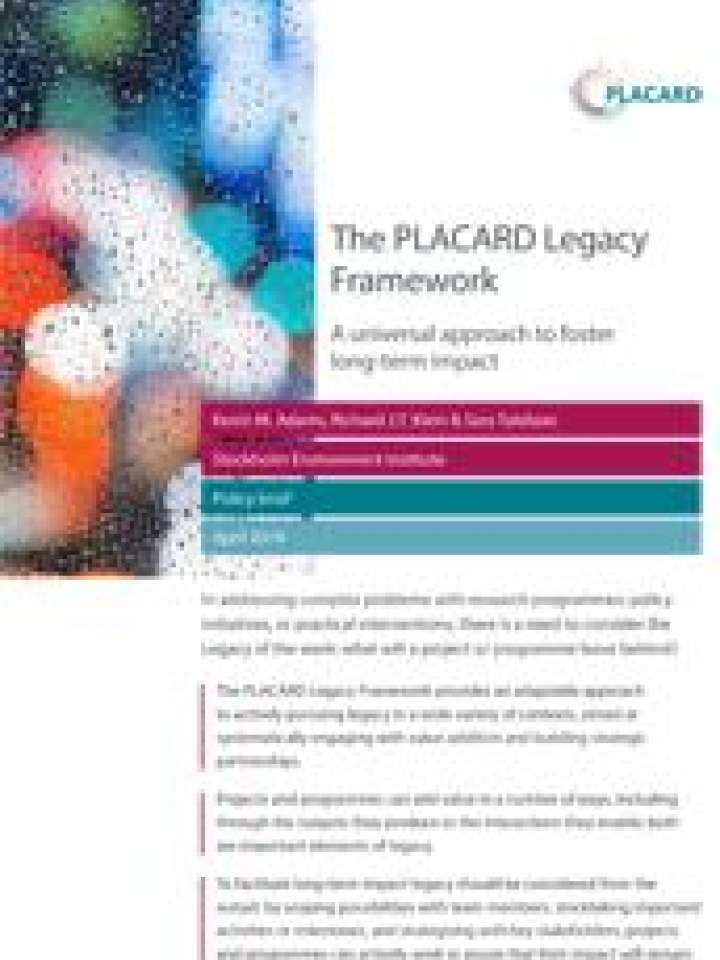The PLACARD legacy framework: a universal approach to foster long-term impact
In addressing complex problems with research programmes, policy initiatives, or practical interventions, there is a need to consider the legacy of the work: what will a project or programme leave behind? The PLACARD (the PLAtform for Climate Adaptation and Risk reDuction) Legacy Framework intends to give researchers, policymakers, and practitioners tools to assess the added value of their efforts, and to facilitate planning for long-term, positive impacts well into the future. The framework can be a useful tool for a wide variety of actors, sectors, and teams as they begin to think critically about what they hope their work will leave behind.
The PLACARD Legacy Framework proceeds in three stages, each of which is intended to be led by a legacy team in close consultation with programme members, key stakeholders, and relevant thought leaders or knowledge partners in the field. To begin, the scoping stage aims to conceptualise “impact” and develop a spectrum of approaches to enable it, with the intention of delineating the goals of the legacy team. In the stocktaking stage, the legacy team should work to identify key areas and mechanisms of value addition within the programme, beginning to articulate activities that may support value addition into the future. Finally, in the strategising stage, the legacy team will prioritise activities and develop strategic engagement plans to help realise their goals.
Explore further
